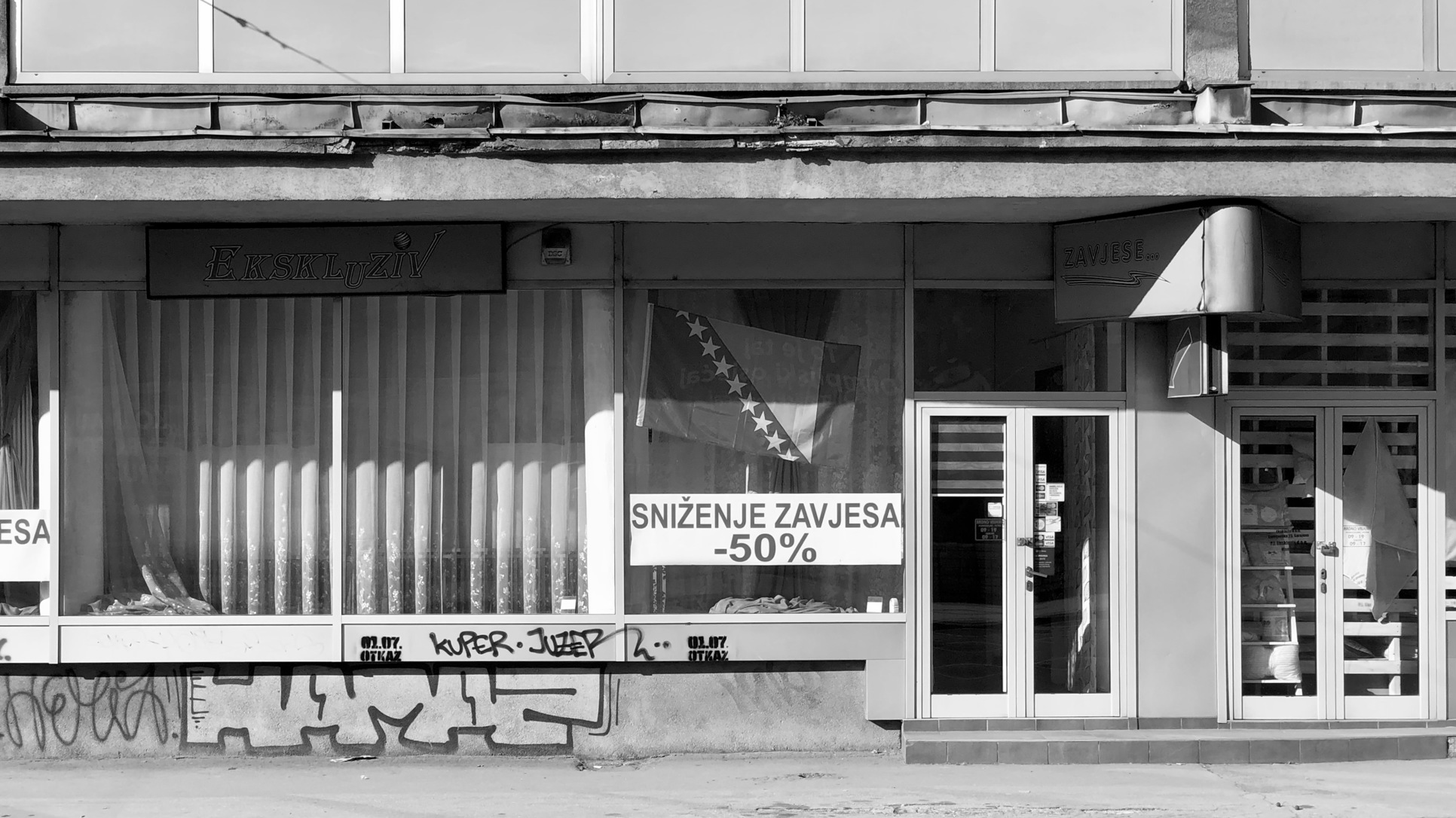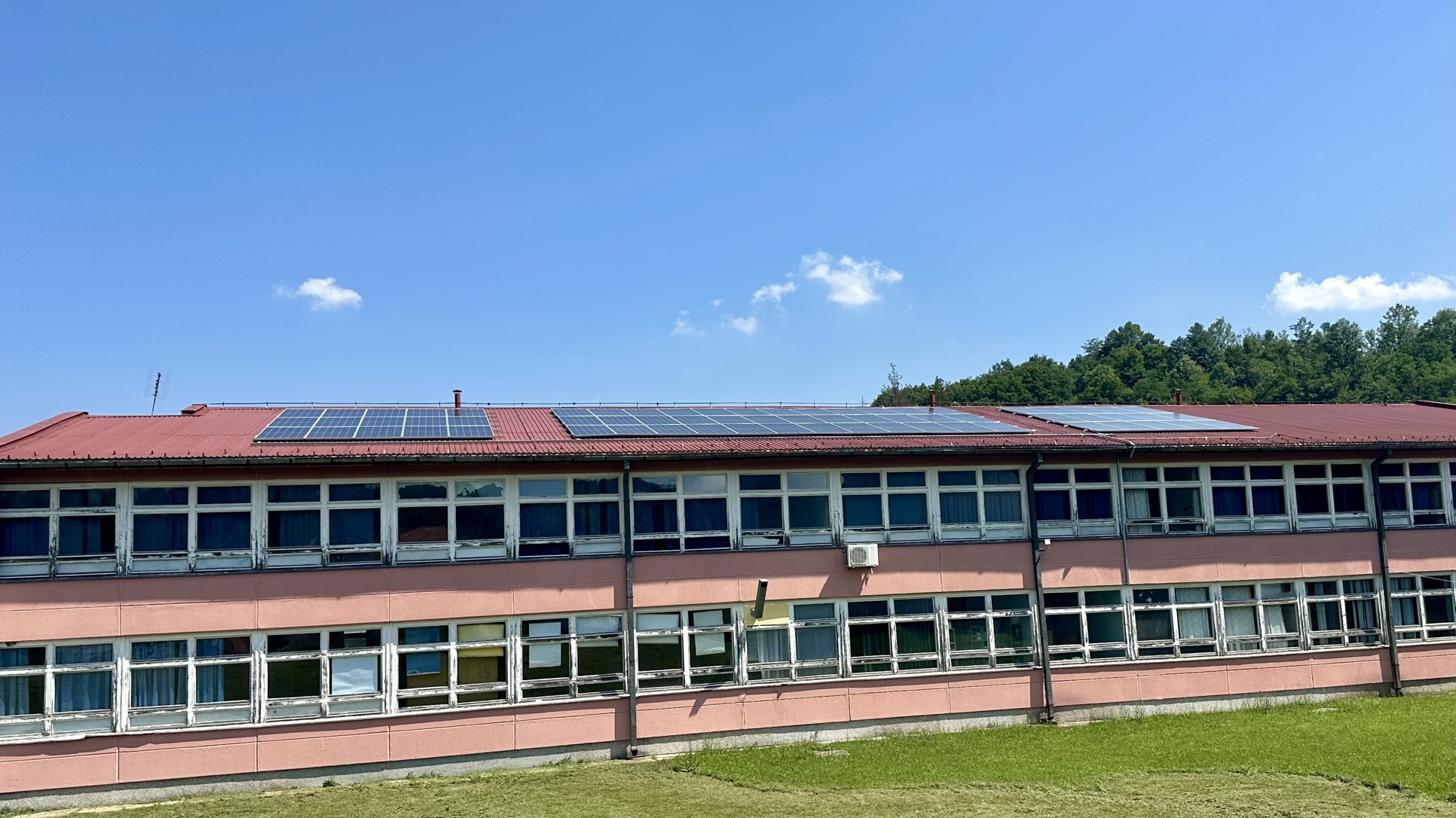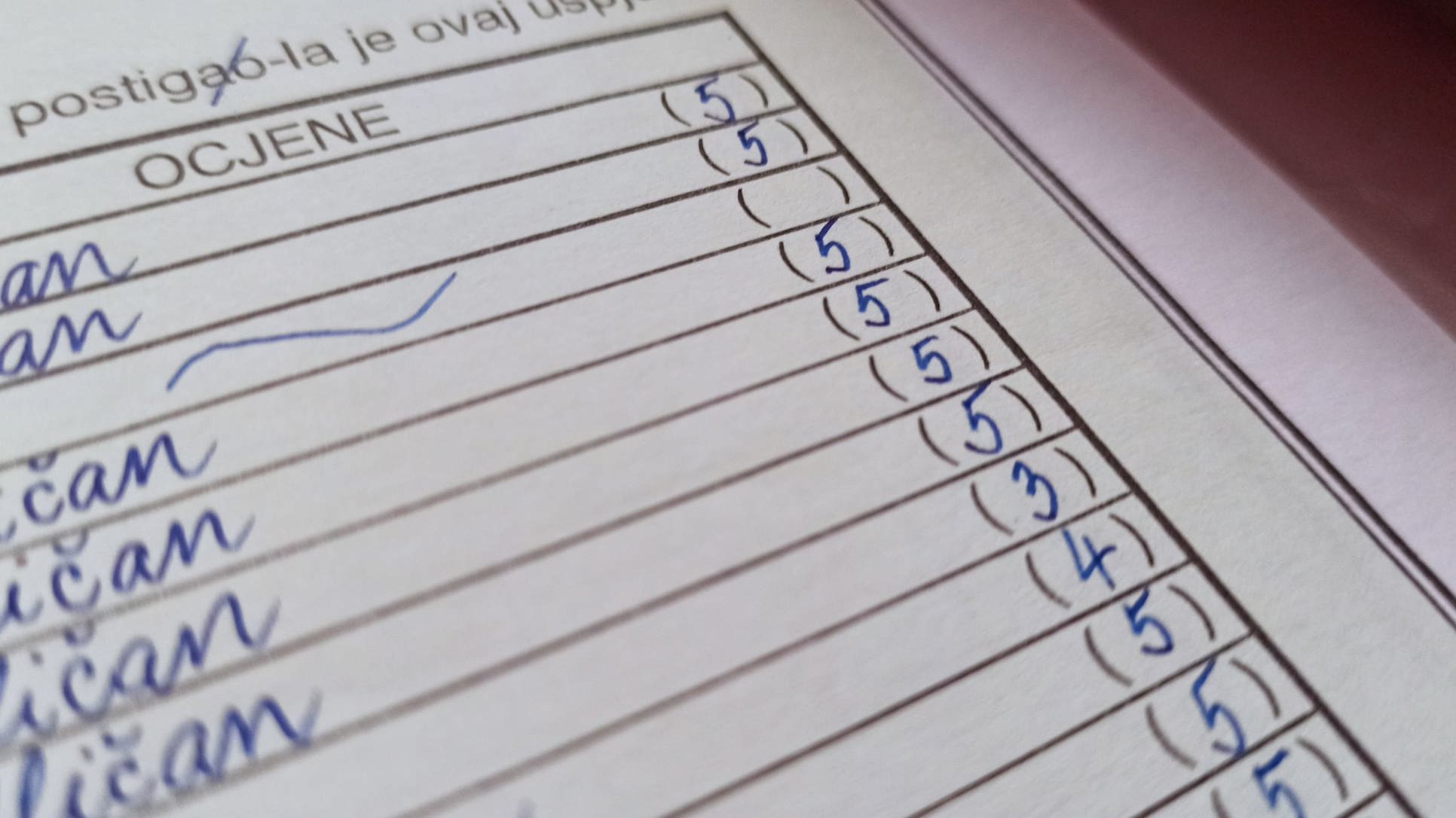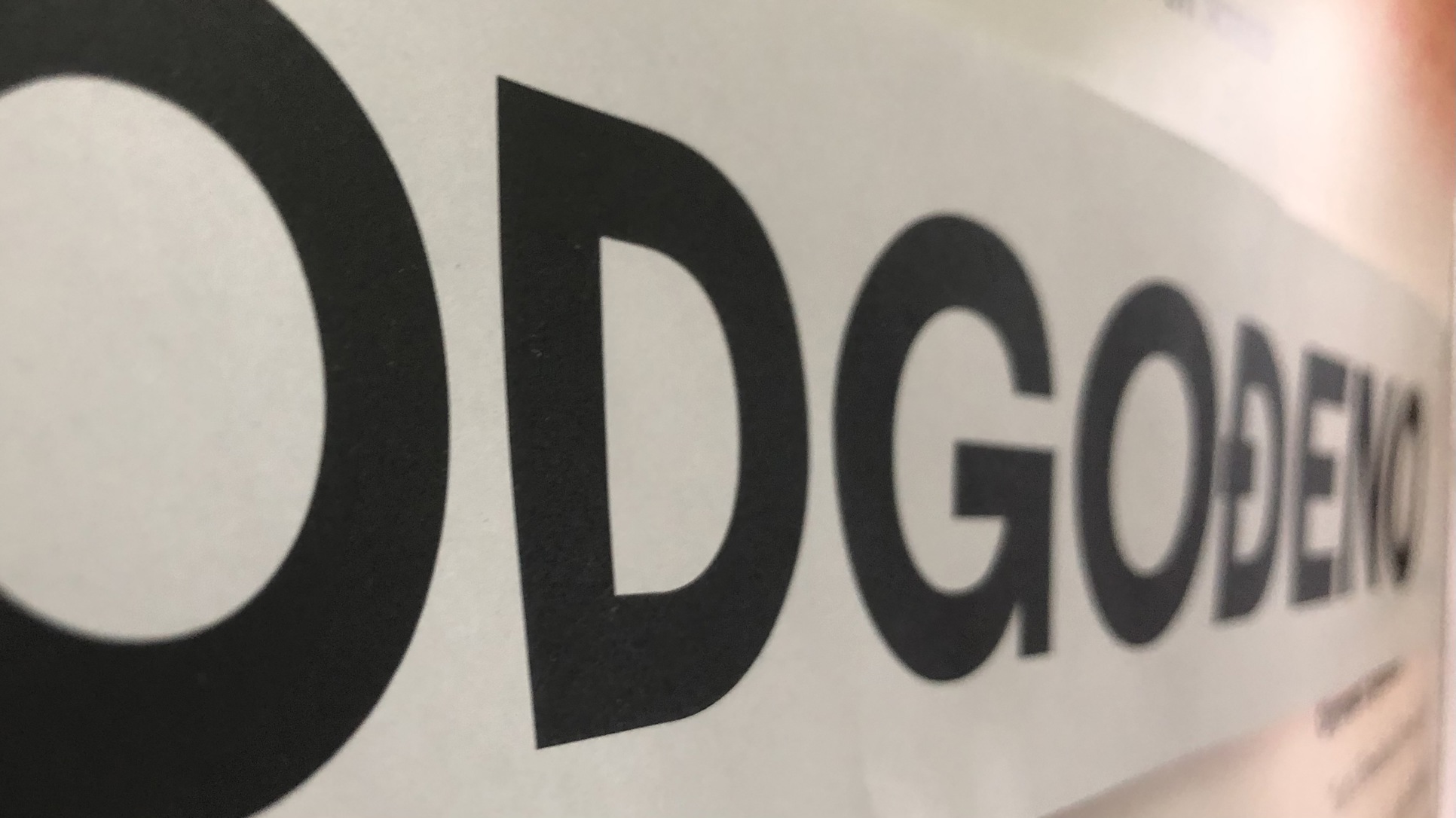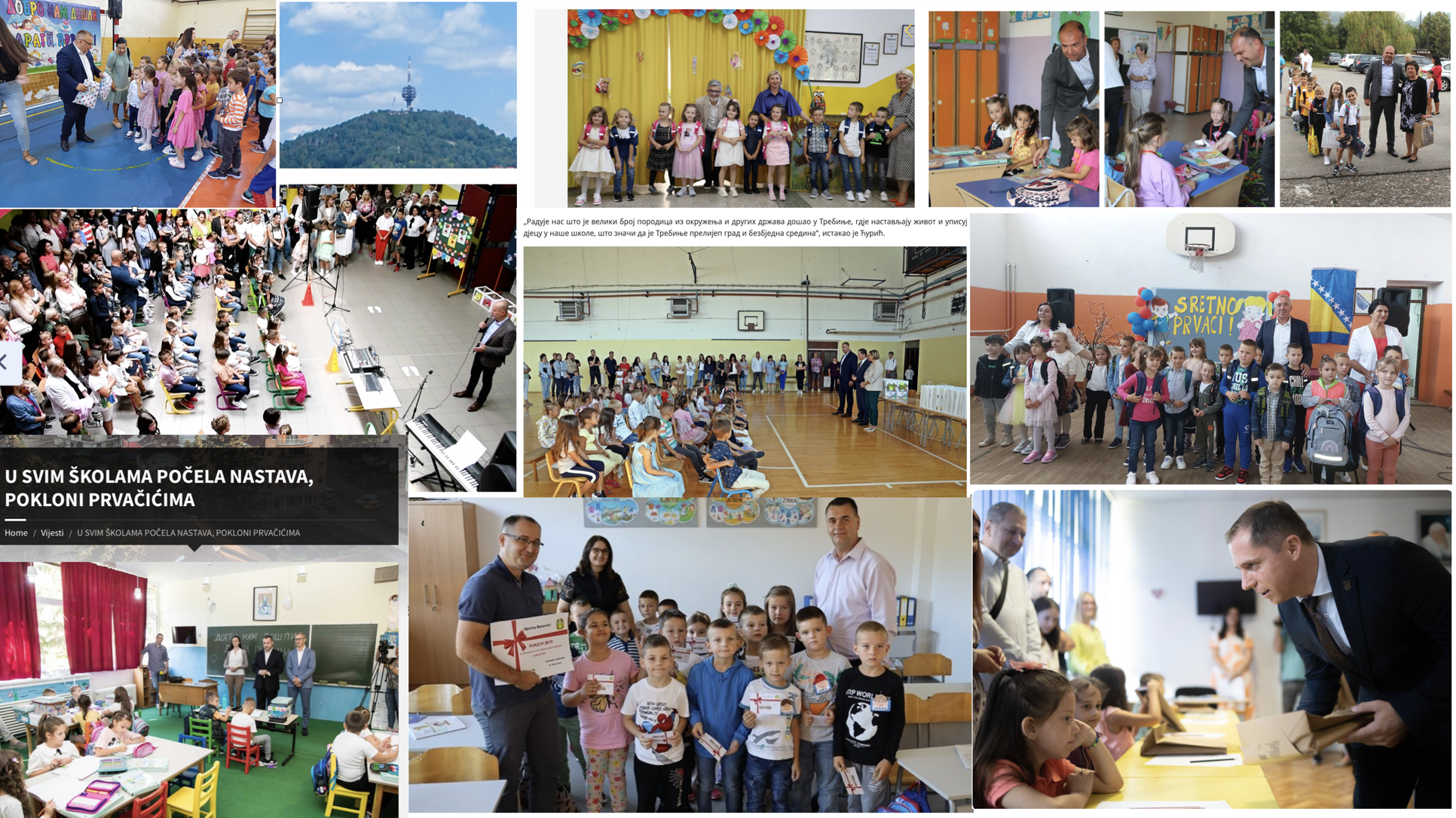Three master's degree students from the Faculty of Economics of the University of Sarajevo, who in 2014/15 enrolled in the master's program created in cooperation with the Faculty of Economics of the University of Zagreb, have not yet received the Croatian diplomas that were promised to them in a competition for admission to that study program. When they got their master's degrees, they only received diplomas from Sarajevo, with the explanation that the law in Croatia had changed while they were studying and that the Agency for Science and Higher Education of the Republic of Croatia (AZVO RH) refused to issue diplomas. The Sarajevo master's students were not helped by multiple appeals to the University, Rectorate, agencies for higher education in both BiH and Croatia, nor appeals to ombudsmen. Multiple appeals to the ombudsmen did not help them get a contract between the Faculty of Economics of the University of Sarajevo and the Faculty of Economics of the University of Zagreb — the Faculty of Economics of the University of Sarajevo says that the contract contains information whose publication would be harmful to the other contracting party. The only useful advice they received from the inspection was to carry out the nostrification procedure themselves and then seek compensation from the Faculty of Economics in Sarajevo.
The dean's office of the Faculty of Economics in Sarajevo claims that they have not given up on these master's degree students and their obligations towards them.
“It is about three students, or two because one gave up her Croatian diploma. We had a lot of questions about that case and a lot of correspondence with the ombudsmen, the Agency for Higher Education in BiH, the Ministry of Civil Affairs, and we will get into it again as soon as the conditions are right. Namely, they enrolled in the master's program in 2014/15, and finished it in 2021 and 2022, when the new Law on Higher Education came into force in Croatia. We were then told by the Agency for Science and Higher Education of the Republic of Croatia, among other things, that the Agency for the Development of Higher Education and Quality Assurance in Bosnia and Herzegovina (HEA) failed to prove the compliance of its work and procedures with European standards and guidelines for quality assurance in the European Higher Education Area (EHEA), and consequently, no adequate application of the principles of the Bologna Process on which the system of higher education in Bosnia and Herzegovina is based. We had a similar problem with the University of Ljubljana, but it was quickly resolved. It is actually possible that even Croatia is not coping well in the new conditions, but we have not given up on the nostrification of those two diplomas,” say at the dean’s office of the Faculty of Economics of the University of Sarajevo.
The Agency for Higher Education and Quality Assurance in BiH says that they have already explained the entire case to the ombudsmen of BiH.
“From the legal side, we appreciate that the Agency for Science and Higher Education of the Republic of Croatia did not correctly and completely determine the factual situation regarding the implementation of the Bologna Process in BiH, and that it could have done so via the Agency's website, where all information about accredited higher education institutions is transparently listed regarding study programs in Bosnia and Herzegovina, and that the Croatian Agency had the opportunity to request information from the Center for Information and Recognition of Documents in Bosnia and Herzegovina,” the Agency writes, and notes that they “would refer students to inspections that would ask the Faculty of Economics of the University of Sarajevo to state whether all the obligations of both parties in the case of this study program been complied with, have they contacted the Faculty of Economics of the University of Zagreb and what have they done with the Agency in Croatia in terms of the recognition of the acquired diplomas.”
Considering this case, in July 2023 the Institution of the Ombudsman of Bosnia and Herzegovina issued a Recommendation ordering “all relevant institutions to take steps within their jurisdiction to harmonize higher education in Bosnia and Herzegovina with European standards in order to enable the unhindered recognition of higher education institutions from Bosnia and Herzegovina in the EU.”
On April 13, 2023, by order of the ombudsman, the inspectorate carried out an inspection at the Faculty of Economics and found that the female students had completed their master's degree, that they were told during enrollment that they would receive a diploma from the Faculty of Economics of the University of Sarajevo and a certified diploma from the Republic of Croatia, which by the day of the inspection they had not yet received. The inspector for higher education, Dženita Zorlak, then, by looking at Annex 2 of the Agreement between the faculties from 2010, determined that the “contracting parties had signed that they would establish common criteria for nostrification, i.e. recognition of the equivalence of diplomas, but also that there is no agreement between EFSA and the injured students because — they are not even signed.” In the end, Inspector Zorlak determines that “there is an obligatory relationship between the Faculties over which the Inspectorate has no influence, that the Faculty of Economics told her that the problem did not occur due to their inaction, but that the problems arise from the work and activities of the Agency for Higher Education in BiH and changes in the law in Croatia. The inspector emphasized that she has no supervision over the work of the Agency for Higher Education and instructed the master's students to submit their own application for diploma certification in Croatia and seek reimbursement from the Faculty of Economics in Sarajevo or to seek protection of their rights in Croatia.”
The Sarajevo Faculty of Economics explains that this is “one of the programs created in 2010, which is implemented in cooperation with the University of Zagreb, for which, upon completion of studies, the process of diploma equivalence, i.e. nostrification, is carried out, the costs of which are borne by the Faculty of Economics” (by withdrawing money from tuition fees — one-year the master's degree cost 8,000, and the two-year course 12,000 KM), “but that the master's students who are considered to be injured graduated after 10.10.2021. when the new Law on Higher Education began to be implemented in Croatia. They emphasize that they had no intention of deceiving anyone, that in this case neither the professors from Croatia who were lecturers on this program, nor the international certificates that the Faculty of Economics has, could help because AZVO does not only look at the faculty, but also national standards, and that the same problem is faced by all faculties in Bosnia and Herzegovina except the University of Mostar — that they do not have a similar problem with any other European country and that they have certain knowledge that Montenegro also has the same problem with Croatia.”
“In that case, we first contacted the Agency for Higher Education in BiH, the Senate considered the problem because you cannot believe that in Slovenia and Croatia our diplomas have different statuses. It is unclear why this is so, because our students in Slovenia get their nostrification very quickly to enroll in a master's degree — the University of Ljubljana does it without any problems, but in Croatia it goes like that. We are very interested in those joint studies because it is an overflow of knowledge and that's why we care about getting those joint studies, but it seems that in Croatia they only have everything on paper, but they don't have enough practice or they don't even know how to conduct those joint studies — they clarify in the Faculty of Economics and promise that as soon as Croatia starts to recognize diplomas from Bosnia and Herzegovina or from the Faculty of Economics — diplomas of completed master's degrees should be sent for certification.”
The vice-rector for international cooperation of the University of Sarajevo, Enita Nakaš, says that with certain countries there are indeed problems with the recognition of completed studies.
“We have been working on solving this problem for years — in the last few years additional efforts have been made and according to the information I have, the Rector's Conference of Bosnia and Herzegovina has initiated certain actions to solve this issue. Unfortunately, Bosnia and Herzegovina is not a member of the European Association for Quality Assurance in Higher Education (ENQU), the reason given is that the Bosnian Agency is not well organized. I think that this issue should be dealt with by the Ministry of Science, Higher Education and Youth in the Government of KS, and the Ministry of Civil Affairs in the Council of Ministers of BiH, which is in charge of coordinating higher education. UNSA undertakes everything within its competences. Individual members also do individual accreditations to additionally ensure confirmation of the quality of studies precisely for the sake of students,” Vice-Rector Nakaš explains and notes that the recognition of diplomas is often regulated differently depending on the state, as well as the employer.
“The University of Sarajevo has signed more than 150 inter-institutional agreements with universities in the European Union, which speaks in favor of the fact that our plans and programs and learning outcomes are recognized in the EU. According to those agreements, students from our University can go on exchange to those institutions, but also students from the EU can come to our University and attend courses, and from 2023 we have been awarded the ECHE (Erasmus Charter in Higher Education, op. a.) which obliges all exchange participants to automatically recognize achieved results. Therefore, the partner universities recognize the classes and exams that their students attended at UNSA,” said Enita Nakaš.
In the Ministry of Science, Higher Education and Youth in the Government of KS, they say that “they requested clarification from the Faculty of Economics, but by the time this text was concluded, they had not received it, and that they are not in a position to comment on the regulations of other countries in this sense, nor to suggest what type of documentation is acceptable when submitting job applications in EU countries.”
“The Ministry often receives requests from students or persons who have completed their studies in the Canton of Sarajevo for the issuance of certificates of accreditation of higher education institutions operating in the area of the Canton of Sarajevo, i.e. confirmation that the higher education institution in the area of the Canton of Sarajevo has permission to carry out a certain study program, which they need for continuing education or employment abroad and serve as valid evidence in those proceedings. The new Law on Higher Education in the area of Sarajevo Canton stipulates the mandatory issuance of diplomas (and other public documents from the field of higher education) in one of the official languages in Bosnia and Herzegovina and in English, which represents a significant relief in the process of recognition of our higher education qualifications outside of Bosnia and Herzegovina,” Minister Adna Mesihović writes in her answer.
The Ministry of Civil Affairs at the Council of Ministers of BiH says that in June 2023, the Council of Ministers of BiH and the Government of the Republic of Croatia invited the Agency for the Development of Higher Education and Quality Assurance in BiH and the Agency for Science and Higher Education of the Republic of Croatia to “intensify cooperation for the purpose of evaluating higher education qualifications from BiH in the Republic of Croatia.” In November 2023, a representative of the Croatian agency paid a working visit to the Bosnian agency, which in the meantime prepared a Proposal of an Action Plan for the implementation of the recommendations of the European Association for Quality Assurance. In March 2024, the proposal was “in the phase of obtaining the necessary opinions for referral to the Council of Ministers of Bosnia and Herzegovina.”
“For each joint master's program of higher education institutions from Bosnia and Herzegovina and the Republic of Croatia, it is defined which diplomas are obtained upon completion and that the status of diplomas obtained upon completion of joint studies should not be equated with other diplomas obtained at higher education institutions in Bosnia and Herzegovina, they say in this to the Ministry. They explain that the decision on employment and the conditions that a person must meet in order to be employed in a certain position in the Republic of Croatia is at the discretion of the employer, with the exception of regulated professions for which the conditions for performing the profession are determined, and work in the profession is approved by the competent authorities.”
“The opinion issued by the AZVO in cases of evaluation of higher education qualifications from Bosnia and Herzegovina in Croatia does not mean (non)recognition of the qualification, but rather represents information intended for the labor market in the Republic of Croatia about all elements of the individual qualification, as it is now prescribed by the new legislative framework in this area,” they write from the Ministry of Civil Affairs. They emphasize that “the Agency for the Development of Higher Education and Quality Assurance in BiH is one of the participants in external quality assurance in the complex system of higher education in Bosnia and Herzegovina divided between the state level, the Republika Srpska entity, the cantons in the Federation of BiH and the Brčko District of BiH and is currently not fully legal member, rather than an associate member in the European Association for Quality Assurance, which means that it carries out activities within its jurisdiction in accordance with the Standards and Guidelines for Quality Assurance in the European Area of Higher Education.”
“In accordance with the new procedures of the European Association, the Agency for Higher Education in Bosnia and Herzegovina has renewed its associate status, continuing activities to fulfill the requirements for full status in this organization, as well as in the European Register of Quality Assurance Agencies,” the Ministry writes. They emphasize that “at the end of 2022, HEA is included in the new EU project Supporting European QA Agencies in meeting the ESG (Supporting European QA Agencies in meeting the ESG, SEQA-ESG) coordinated by the European Association, which aims to help agencies which are not full members to acquire such status.”
The Ministry of Civil Affairs clarified that the “Parliamentary Assembly of Bosnia and Herzegovina should announce a public competition for the election of seven members of the Board of Directors of the HEA whose term has expired, but that the criteria for the selection to be given by the HEA are awaited.”
In the meantime, the Faculty of Economics in Sarajevo has created a new program of study with the Faculty of Economics in Osijek as a joint study that must be jointly registered with one of the European agencies for higher education in order for students to eventually receive a double or two individual degrees.
“Now we work on a completely different basis - the condition is that students spend at least one or two semesters in Croatia,” the Faculty of Economics explains.
In parallel with the request for the promised certified diplomas, the injured master's students also asked for insight into the contract between the faculties from Bosnia and Herzegovina and Croatia, but they never received it, regardless of complaints to the ombudsmen.
In the past period, all the processes before the ombudsmen related to this case have been concluded — the master's students are still waiting for their diplomas from Croatia. They would also like to see the contract between the faculties, which would have to be a public document — the public interest test, which is the only authority for evaluation, has never been done — whether the public interest or the interest of the Zagreb Faculty of Economics, which is also public, is greater.



